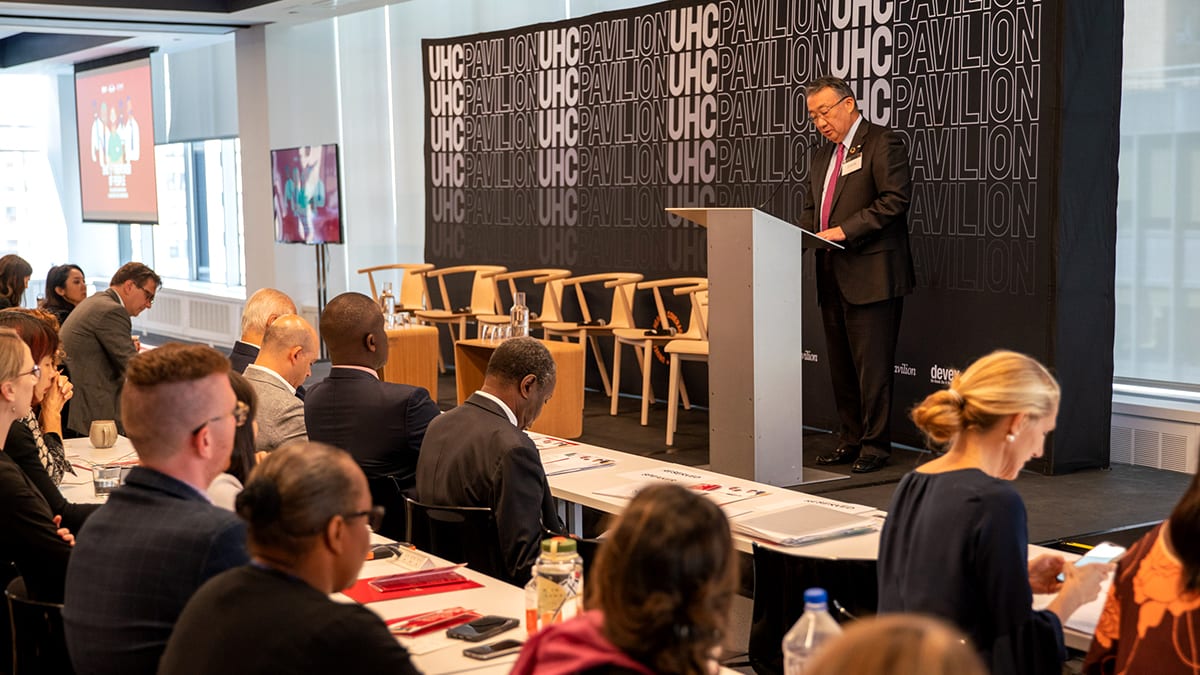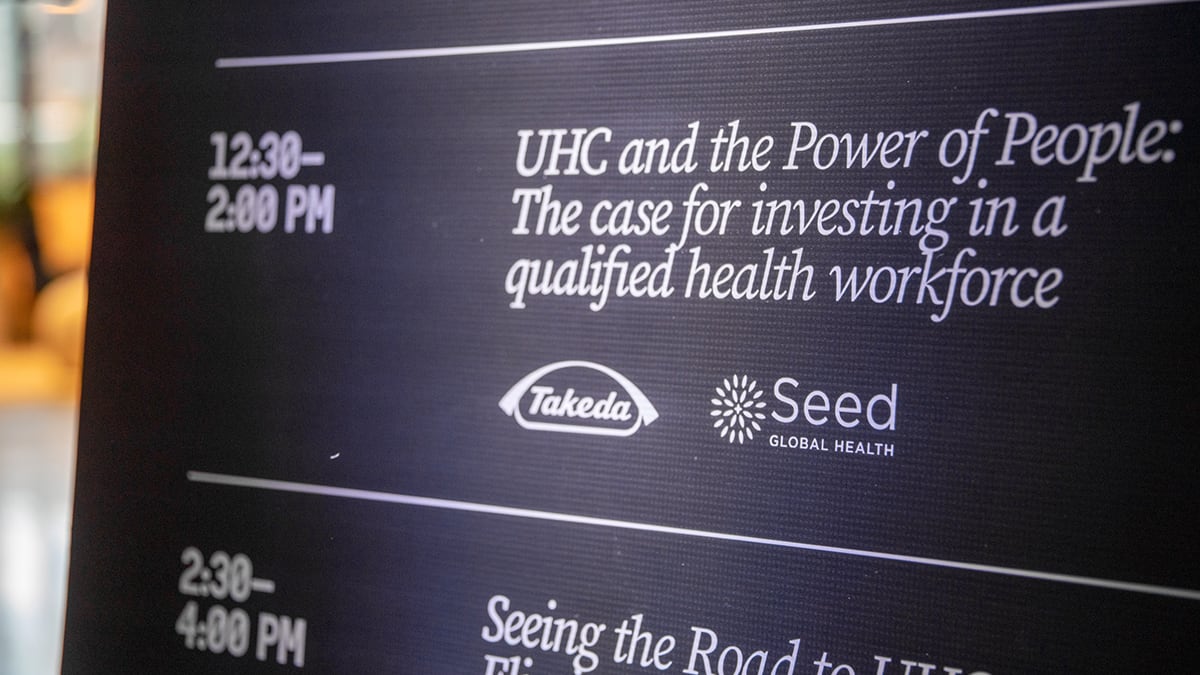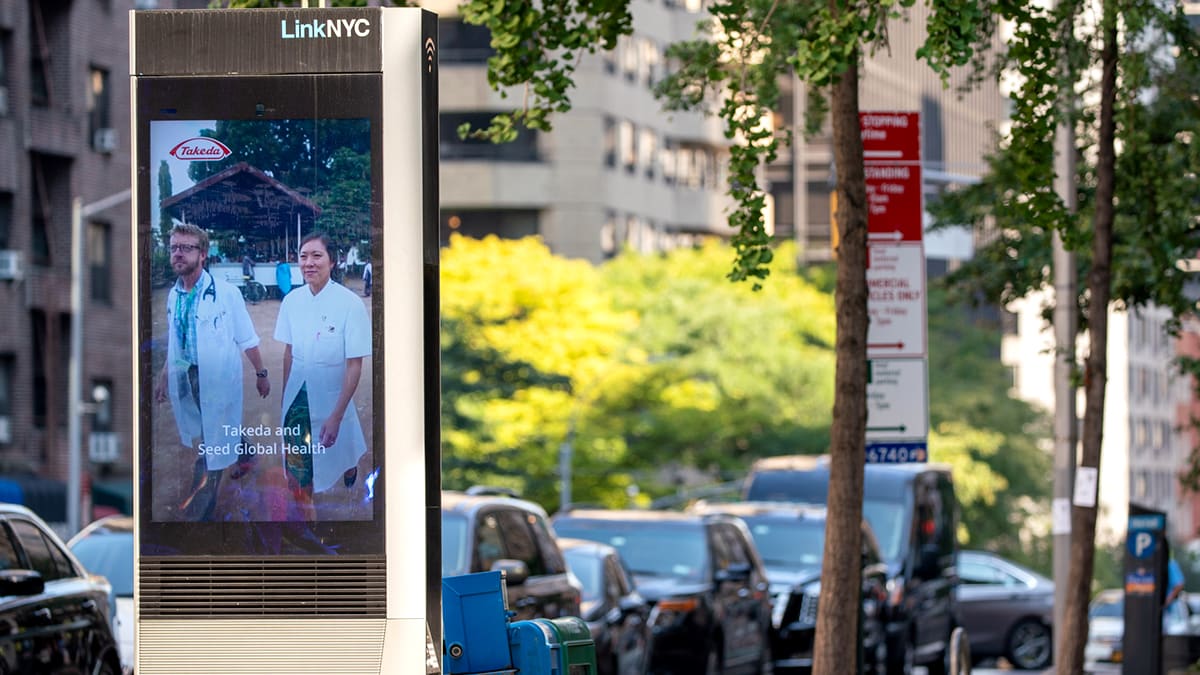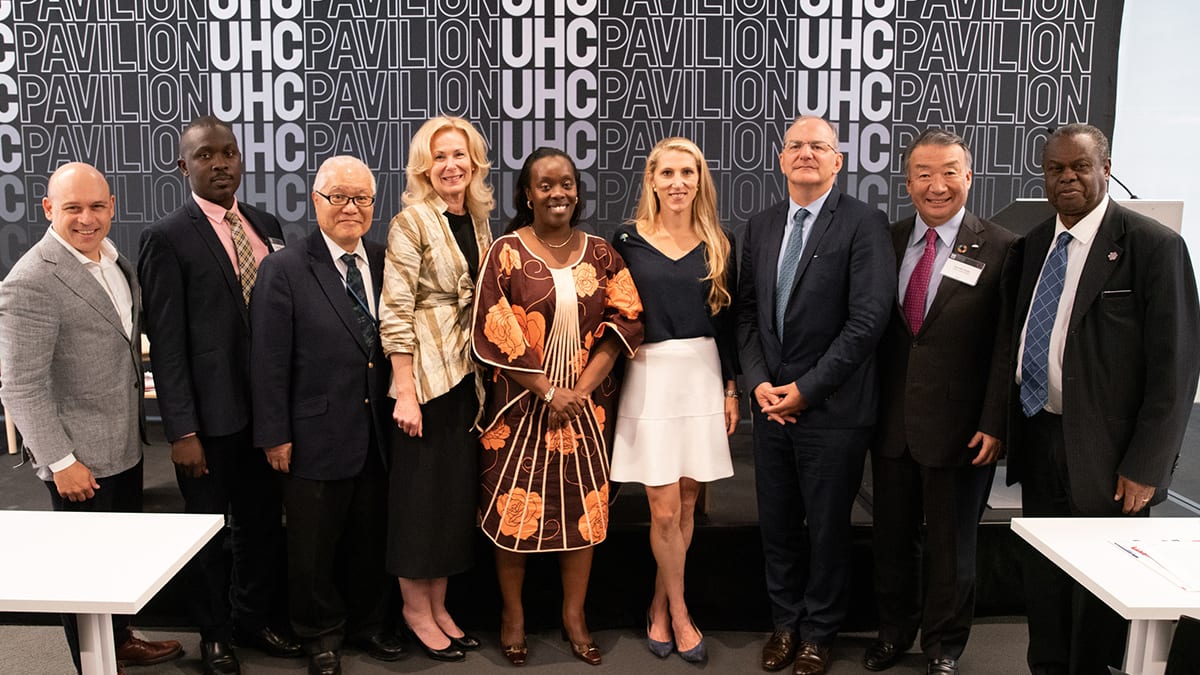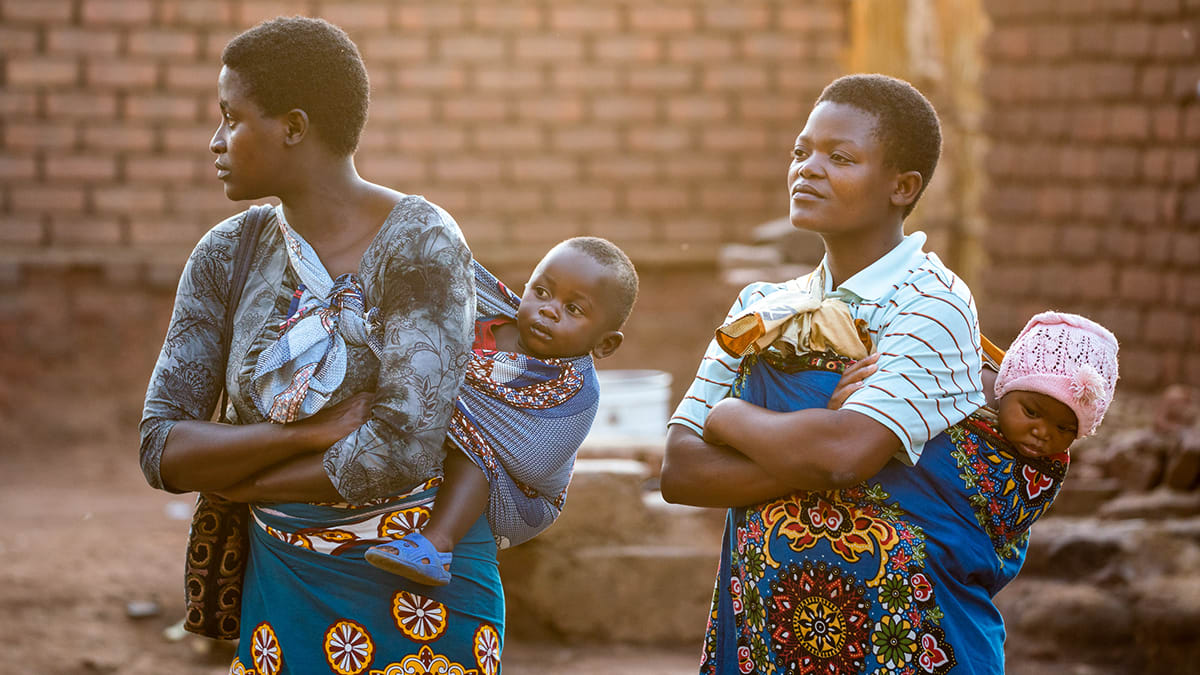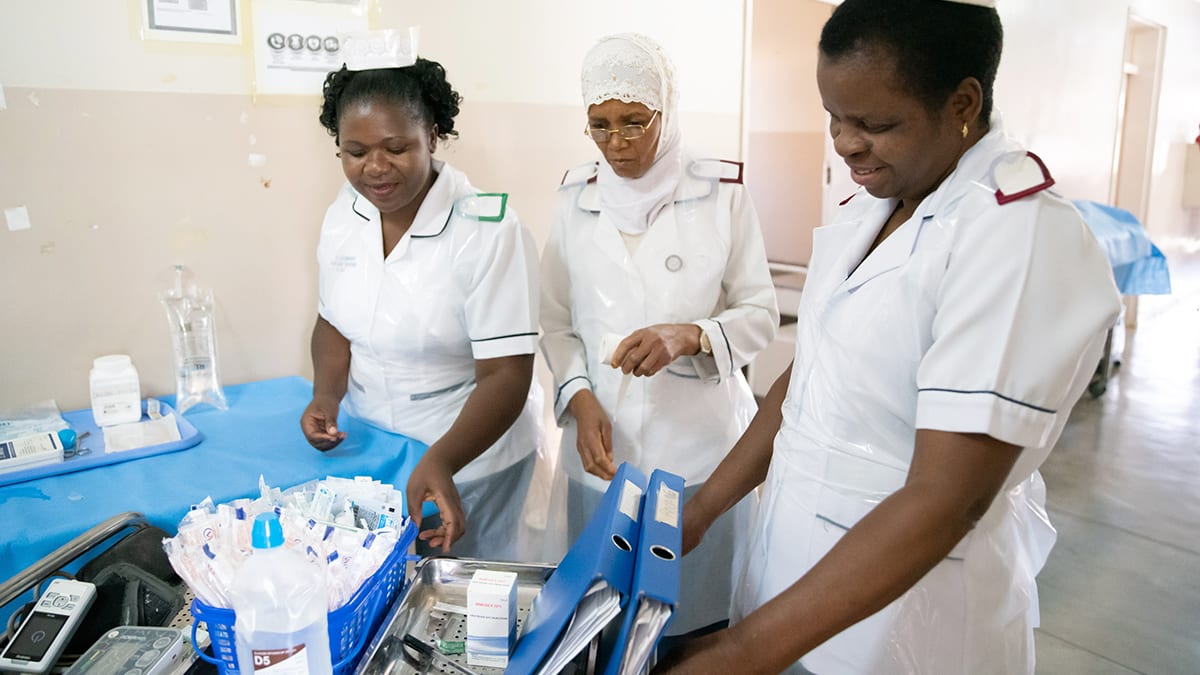Universal Health Coverage and the power of people: United Nations General Assembly side event | Takeda Stories
Universal Health Coverage and the power of people: United Nations General Assembly side event
A qualified health workforce is a key pillar of both healthy populations and prosperous economies, and Universal Health Coverage (UHC) cannot be achieved without it. However, the World Health Organization (WHO) projects the world will be short 18 million health care workers by 2030.
Recognizing the pressing nature of the issue and given the company’s long-term commitment to the lasting health of patients worldwide, Takeda partnered with Seed Global Health and the international development media platform Devex to bring together top global health and African leaders. The high-level side event at the United Nations General Assembly (UNGA) took place on September 24, 2019 and focused on taking stock of current efforts and outlining a path of action to accelerate progress.
The “UHC and the Power of People” event convened the day after the UN High-Level Meeting on UHC, during which world leaders adopted the high-level UN Political Declaration on UHC, the most comprehensive health agreement ever made at this level.
Investment, policy, action: A choice and an imperative
“UHC will take a unique shape in each country,” Haruhiko Hirate, Corporate Communications & Public Affairs Officer at Takeda, said at the event, “but in all its forms, UHC, at its core, is about keeping people healthy and preventing disease. We can’t do this without a strong, qualified health workforce.”
Mr. Raj Kumar, Editor-in-Chief of Devex, pointed out that “while we know the health workforce is essential, there aren’t obvious narratives that show us how to develop that workforce.”
Meanwhile, Dr. Vanessa Kerry, CEO of Seed Global Health, explained that even today, millions of people do not have access to quality care. “Lack of quality care causes harm,” she said. “The political declaration for UHC is incredibly important, and it is rightly person-centered, but it doesn’t translate into action, and it doesn’t close the financing gap. Closing that gap is a choice – one we must make.”
Governments must lead the charge on making that choice, argued Dr. Diane Gashumba, Minister of Health for Rwanda. “After the [1994] genocide, we had to set priorities. We chose to focus on primary health care and train community health workers,” she said. She credited these investments with her country’s success in meeting the Millennium Development Goals and putting them on track to meet the Sustainable Development Goals (SDGs).
“Good governance and political leadership are invaluable,” agreed Professor Keizo Takemi, WHO Goodwill Ambassador for UHC and Member of the Japanese House of Councilors. He added that it is essential to recognize that every country has different context and conditions, and any global UHC framework must be flexible.
But it is not just a matter of investing enough money; another challenge is to invest it wisely, said Ambassador Deborah Birx, U.S. Global AIDS Coordinator and Special Representative for Global Health Diplomacy and Dr. Peter Salama, WHO Executive Director for UHC.
Dr. Francis Omaswa, Executive Director of the African Center for Global Health and Social Transformation and 2019 Hideyo Noguchi Africa Prize recipient, called for a shift in messaging: “Populations need to see UHC as a right. Governments need to see it as a political imperative.”
A priority for Takeda employees; a legacy of Japanese leadership
“Our company has important responsibilities, which we see as unique opportunities to contribute to real progress toward the SDGs – beyond the creation of life-changing medicine,” Hirate emphasized. For more than a decade, Takeda’s global health and corporate social responsibility (CSR) initiatives have been contributing to the lasting health of patients worldwide through long-term commitments to disease prevention, capacity building — health worker training in particular — and access to health care.
Employees select the Global CSR Programs Takeda supports, including a partnership with Seed Global Health and many other NGOs and international organizations dedicated to addressing the shortage of skilled health care professionals in sub-Saharan Africa and elsewhere.
As a global biopharmaceutical company headquartered in Japan and aligned with the SDGs, Takeda commends the Government of Japan's role in raising UHC to the top of the global agenda and keeping it there, evidenced most recently during the G20 Summit and TICAD meeting in Yokohama during summer of 2019.
About Universal Health Coverage (UHC)
Universal Health Coverage (UHC) is achieved when every person can access health care without suffering financial hardship. It encompasses a range of services across the primary, secondary, and tertiary levels of care, and takes a unique form in each country context, with variations in who, what services, and how much of the cost are covered. Within the Sustainable Development Goal 3: Health, Target 3.8 focuses explicitly on UHC. Achieving UHC will also contribute to achieving the SDGs focused on economic growth, reducing poverty and inequality, and peace and stability. One of the key challenges for many countries is that they are not able to provide everyone with all the health services they need at an affordable price, due to lack of funding, infrastructure, and qualified health workers. Indeed, successful UHC is only possible with a sufficient capacity of well-trained health workers. Yet, the world faces a critical shortage of health workers, which remains one of the major bottlenecks to UHC. Whatever innovations we can create, service delivery and access in the last mile will not be ensured without quality health workforce on the ground.
Share this story


